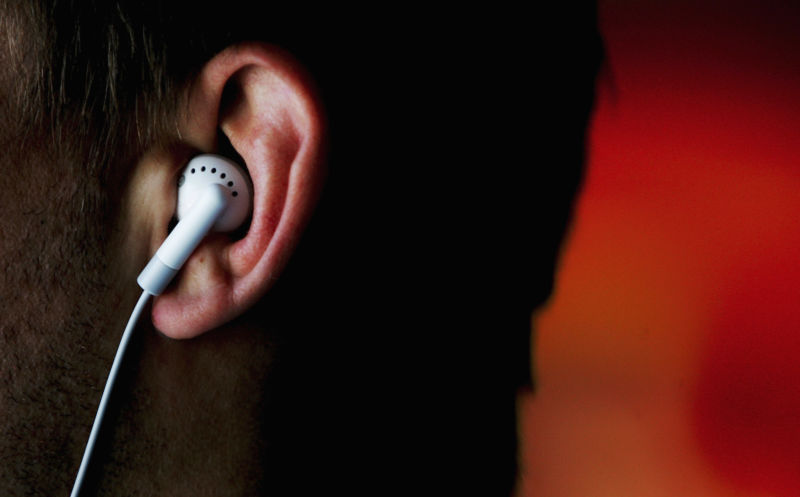Community, Leadership, Experimentation, Diversity, & Education
Pittsburgh Arts, Regional Theatre, New Work, Producing, Copyright, Labor Unions,
New Products, Coping Skills, J-O-Bs...
Theatre industry news, University & School of Drama Announcements, plus occasional course support for
Carnegie Mellon School of Drama Faculty, Staff, Students, and Alumni.
CMU School of Drama
Thursday, September 20, 2018
Senate passes copyright bill to end 140-year protection for old songs
Ars Technica: For the last decade, the Congressional debate over copyright law has been in a stalemate. Content companies have pushed for stronger protections, but their efforts have been stopped by a coalition of technology companies and digital rights groups.
Subscribe to:
Post Comments (Atom)

4 comments:
So, I still trying to parse through this law. From the sounds of it, it is trying to get rights for music all in one place--"The Music Modernization Act aims to establish a modern system for licensing mechanical rights. It creates a new national database that will aim to cover all copyrighted music in the United States. If all goes according to plan, this new organization will offer streaming services "one stop shopping" for getting songwriters' licenses for all the songs they want to stream, with the database helping to get the funds to the appropriate songwriters and music publishers," which I don't see a problem with per say, especially because often times people will try and use the defense that they didn't know who to contact for rights--this would void that a a credible excuse.
Pre 1972 records seem like they will get the best part of the deal--"The bill would have extended full copyright-like protection to these works—without changing that 2067 expiration date. That means a song recorded in 1927 would effectively get 140 years of protection, vastly longer than the 95 years current law gives to books, movies, and other works published around the same time." In theory I can see how this is problematic--it puts these works at more of a premium then other creative works of the era, which could cause trouble to organizations trying to produce work from the time. That said, applying for rights and paying for them isn't something I would want to be made too easy or forgone. Paying artists is very important, and the law should be doing its best for them. I do understand how important public domain is, but so is the proper compensation and credit for an artist.
This is a very interesting motion, and I agree with Madeleine above in that making these rights too accessible could potentially be taking money and credit away from artists. However, I do understand how condensing this process into a centralized rights-granting organization will be beneficial to both rights holders and those applying for rights. This streamlined process will facilitate artists in getting their rightful dues in a (hopefully) quick amount of time, and ensure that there is a greater chance that rights will be appropriately applied for and acquired. It is also very interesting that this bill has garnered the support of all parties involved, which makes me think that it is a good compromise for all. As it is now, the multiple laws and amendments to the laws provides a very confusing web of math and dates. If this law should be passed, it would simplify a lot of this unnecessary complexity. Mickey won't be too happy, but then again nothing lasts forever.
While Disney is often seen as a force for good, they are bad for the average American media consumer, as they have radically expanded copyright laws, in order to protect their own Intellectual Property (Mickey Mouse). In the last Century, practically nothing has entered the Public Domain. While this is a step in the right direction, it still needs to pass the House of Representatives and the President’s desk. Of course, artists deserve and need to get paid, however, the average lifespan of artists and companies is less than one-hundred years. This bill would introduce music before the year 1972 into the public domain, which would be a huge step forward for public art and breaking down the issues with copyright over the past decade and a half. I believe that this is a good step forward for general art in the United States of America, and should be embraced by all lawmakers and citizens of the United States alike.
I am so glad they are finally clearing this up on a national level. Depending on the production, finding music and working through the copyright protections involved can absolutely be the most frustrating part of a sound design. Sometimes it’s fine of course, if you are looking at recent or very old music, or if you can write a piece yourself. But when the director asks for thirteen distinct original recordings of “suspenseful” jazz from the 1920s to cover their scene changes....... good luck finding that at all, let alone in public domain. I would imagine that this problem is especially troublesome for productions that tour across state lines and are forced to accommodate multiple sets of arcane laws regarding copyright. I suppose such a show would likely have a budget big enough to buy rights to music or to hire someone to sort through copyright forests (or except when a specific piece is needed to write a score). Even so, the current system is ridiculous and tedious and this new legislation is certainly a welcome change.
Post a Comment